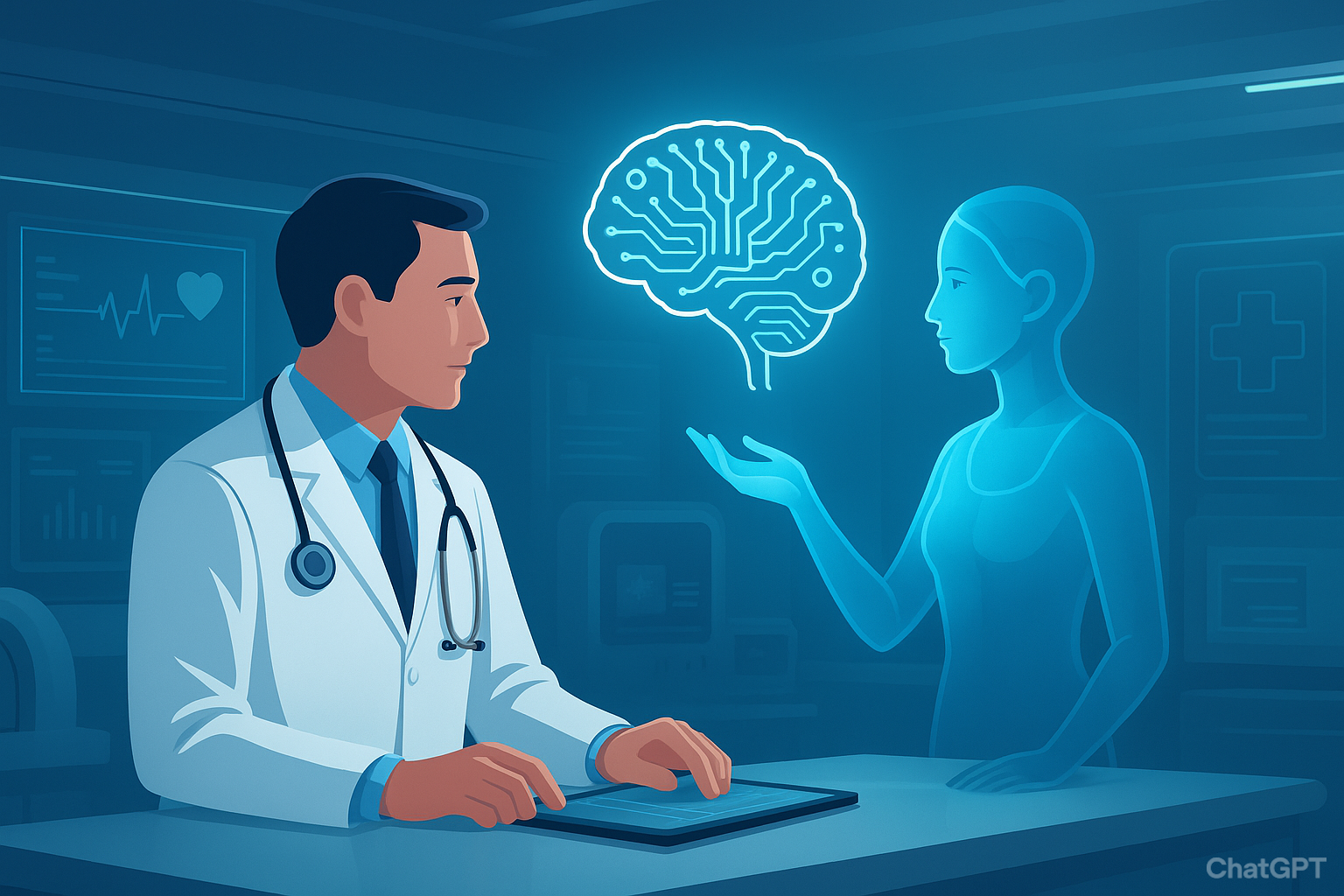
🔹 Introduction
Artificial Intelligence (AI) is no longer just a buzzword in healthcare — it’s a powerful tool transforming how doctors diagnose, patients receive care, and hospitals operate. With AI in Healthcare 2025 taking center stage, we are witnessing a shift from experimental projects to large-scale adoption. From predictive diagnostics to robotic surgery, AI is redefining the future of medicine in ways that were once unimaginable.
So, what are the key AI in healthcare 2025 and beyond? Let’s explore the future.
🔹 1. AI in Predictive Diagnostics
By 2025, AI-powered systems are expected to detect diseases earlier and more accurately than ever before.
- AI algorithms can identify cancer, heart disease, or neurological disorders in imaging scans.
- Predictive models help doctors anticipate health risks before symptoms even appear.
💡 Example: Google’s DeepMind AI achieved over 90% accuracy in breast cancer detection — outperforming human radiologists in some studies.
🔹 2. Personalized Medicine Powered by AI
The “one-size-fits-all” approach to treatment is fading. AI will enable personalized treatment plans based on:
- Genetic data (precision medicine)
- Lifestyle and environment
- Patient health records
This shift means patients will receive tailored therapies that are more effective with fewer side effects.
🔹 3. AI-Enhanced Robotics in Surgery
Surgical robots are becoming more precise thanks to AI in Healthcare 2025 and beyond:
- AI-assisted robotic surgery will help doctors perform minimally invasive procedures with better accuracy.
- Robots will also provide real-time guidance during complex operations.
💡 Hospitals are already using AI-driven robotic arms for heart and orthopedic surgeries.
🔹 4. Virtual Health Assistants & Chatbots
Telemedicine is here to stay, and AI is making it smarter:
- Virtual assistants will provide 24/7 patient support, answering questions, scheduling appointments, and offering medication reminders.
- AI chatbots will handle routine consultations, reducing the workload on healthcare professionals.
🔹 5. Drug Discovery & Clinical Trials
AI is drastically cutting the time it takes to bring new drugs to market. By analyzing massive datasets, AI can:
- Predict how molecules will behave
- Identify promising compounds faster
- Optimize clinical trial processes
💡 In fact, AI already helped discover potential COVID-19 drugs in record time.
🔹 6. Mental Health & AI Therapy
AI isn’t just for physical health. In 2025, expect wider adoption of:
- AI-powered therapy apps offering cognitive behavioral therapy (CBT)
- Voice analysis AI that detects stress, depression, or anxiety through speech patterns
While not a replacement for human therapists, these tools make mental health care more accessible and affordable.
🔹 7. Data Privacy, Ethics, and Regulation
As AI grows, so do concerns:
- Patient data privacy must be safeguarded.
- AI decisions need transparency and fairness.
- Governments worldwide are introducing AI healthcare regulations to ensure safety.
The future will balance innovation with ethical responsibility.
🔹 8. AI in Global Healthcare Accessibility
AI could bridge healthcare gaps in developing countries by:
- Providing remote diagnostics via smartphones
- Offering low-cost AI chatbots for basic care
- Assisting understaffed healthcare systems with scalable solutions
This has the potential to democratize healthcare worldwide.
🔹9). AI in Healthcare Marketing
In addition to transforming patient care, AI in Healthcare 2025 is also revolutionizing hospital marketing and outreach. Hospitals and clinics are using AI-driven tools to analyze patient behavior, segment audiences, and deliver highly personalized marketing campaigns.
For example, AI chatbots on hospital websites can guide visitors to the right department, while predictive analytics helps identify which services patients are most likely to need.
Hospitals are also leveraging AI to optimize content for social media, run targeted advertising campaigns, and track engagement more effectively. This not only improves patient acquisition but also strengthens trust by delivering the right information to the right people at the right time.
🔹 Conclusion
The future of AI in healthcare is not about replacing doctors — it’s about empowering them with better tools. From predictive diagnostics to personalized medicine and robotic surgeries, AI is reshaping healthcare at every level.
As we look ahead, AI in Healthcare 2025 represents a turning point in how technology supports medical professionals and patients alike. Hospitals are increasingly adopting AI-driven diagnostic tools that can analyze medical images with remarkable precision, reducing errors and improving early detection of diseases.
At the same time, virtual health assistants and chatbots are making healthcare more accessible by providing instant responses, reminders, and even basic consultations. Beyond hospitals, AI is also shaping pharmaceutical research, speeding up drug discovery, and enabling more personalized treatment plans. These advancements highlight that AI is not just an innovation—it is becoming the backbone of modern healthcare.
As we move beyond 2025, one thing is clear: the fusion of human expertise and AI innovation will define the next era of medicine.
👉 What do you think — will AI make healthcare more human-centered or too technology-driven? Share your thoughts in the comments!
📩 Subscribe to our newsletter for more insights on AI and emerging technologies.
Read More Generative AI Explained: How It’s Changing Creativity